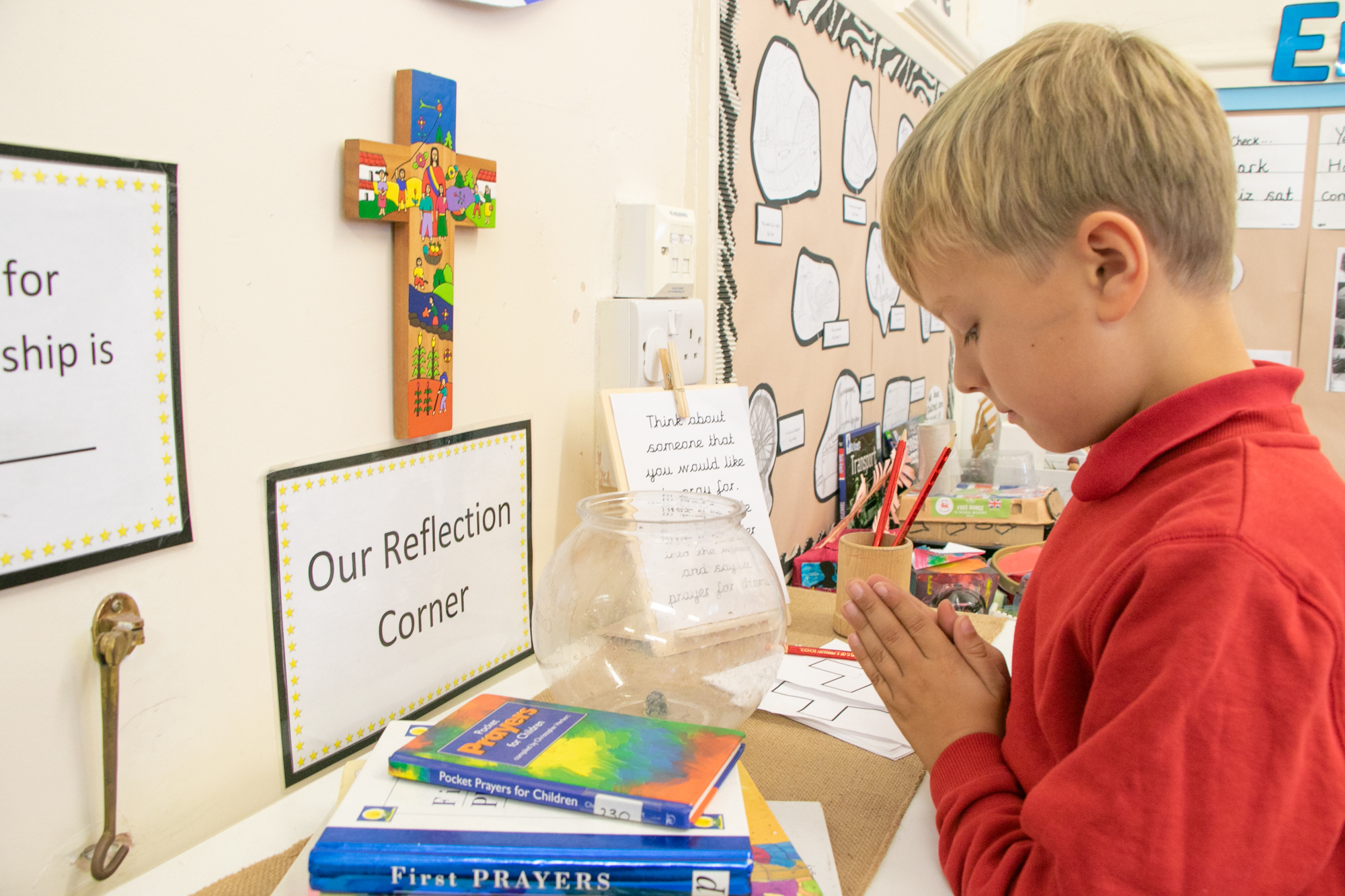How RE supports our school’s vision:
At Aberford, our Christian Values are at the heart of our learning about the world around us. The purpose of RE (a statutory subject within the National Curriculum) is to pose challenging questions to help develop pupils' knowledge and understanding of the values and beliefs of Christianity, other principal religions, other religious traditions and world views. This helps give pupils the knowledge and skills to flourish both within their own community and as members of a diverse and global society. Our RE curriculum gives pupils opportunities to promote an ethos of respect for others, challenge prejudice and stereotypes, understanding empathy and cohesion alongside developing their own views, beliefs and spirituality. Studying RE enables pupils to ask some of the big questions about human life on Earth and to compare the answers given within different religions' traditions.
Why RE matters
RE ‘should explore the important role that religious and non-religious worldviews play in all human life. This is an essential area of study if pupils are to be well prepared for life in a world where controversy over such matters is pervasive and where many people lack the knowledge to make their own informed decisions. It is a subject for all pupils, whatever their own family background and personal beliefs and practices.’ - Commission on RE, September 2018.
Understanding Christianity
As a Church of England school, we use the Understanding Christianity syllabus to support our pupils in developing their understanding of Christianity, as a contribution to their understanding of the world and their own experience within it. This syllabus does this by integrating pupils' developing understanding of significant theological concepts within Christianity with their own self-understanding and understanding of the world, as part of their wider religious literacy.
It aims to:
- enable pupils to know about and understand Christianity as a living world faith, by exploring core theological concepts;
- enable pupils to develop knowledge and skills in making sense of biblical texts and understanding their impact in the lives of Christians;
- develop pupils' abilities to connect, critically reflect upon, evaluate and apply their learning to their own growing understanding of religion and belief (particularly Christianity), of themselves, the world and human experience.
Believing and Belonging
Our syllabus is called Believing and Belonging because it includes two key elements.
- First, it is about beliefs and values. It aims to develop pupils’ understanding of world faiths and other beliefs, exploring their commonality and diversity. A good curriculum will ensure that there is both depth of study (some areas investigated in detail) and breadth (an overall general understanding of the faiths and related philosophical and ethical questions).
- Secondly, it is about ‘belonging’. It aims to nurture pupils’ awareness of the treasury of diversity as well as sensitivity to the questions and challenges that different views and cultures can present. Ultimately, we all share a common humanity and we share this patch of the Earth. Human beings are strengthened and empowered by learning from each other. So, through experience and culture, it is possible to explore the opportunities, challenges and purpose of our individual lives and communities. Engaging and stimulating RE helps to nurture informed and resilient responses to misunderstanding, stereotyping and division. It offers a place in the curriculum where difficult or ‘risky’ questions can be tackled within a safe but challenging context.
Primarily, RE’s purpose is to give pupils a broad understanding of Christianity, world faiths and non-religious beliefs; this is sometimes referred to as religious literacy. It is essential that the curriculum ensures that there is both depth of study (some areas investigated in detail) and breadth (an overall general understanding of the faiths and related philosophical and ethical questions). Properly taught, RE is a rigorous academic subject, supporting problem-solving and critical thinking skills. There are additional benefits from the balanced study of RE. It nurtures SMSC development and pupils’ understanding of diversity. A universal RE entitlement means it must aim to help pupils to understand diversity, empathy and cohesion alongside developing their own views and beliefs. This syllabus therefore deliberately integrates religious studies with aspects of philosophical questions and ethical issues. It also embraces the reality that beliefs are not always linked to faith a transcendent deity.
RE can contribute dynamically to children and young people’s education by provoking challenging questions about meaning and purpose in life, beliefs about God, ultimate reality, issues of right and wrong and what it means to be human. A holistic approach to Spiritual, Moral, Social and Cultural development (SMSC), British Values, and Believing and Belonging: The Local Agreed Syllabus for RE in Calderdale, Kirklees and Leeds, 2019 7
Community Cohesion focuses on preparing pupils for life in the 21st century, engaging them in a contemporary and relevant context. RE develops pupils' knowledge and understanding of Christianity, other religious traditions and world views and explores their responses to life's challenges. This gives pupils the knowledge and skills to flourish both within their own community and as members of a diverse and global society.
RE plays an important role in preparing pupils for their future, for employment and lifelong learning. It enhances their spiritual, moral, social and cultural development by:
- Developing awareness of the fundamental questions raised by human experiences, and of
- how religious teachings can relate to them;
- Responding to such questions with reference to the teachings and practices of religions and
- other belief systems, relating them to their own understanding and experience;
- Reflecting on their own beliefs, values and experiences in the light of their study.
RE - Long Term Plans and Progression
If you have any questions regarding the curriculum we teach, please contact the school directly.
